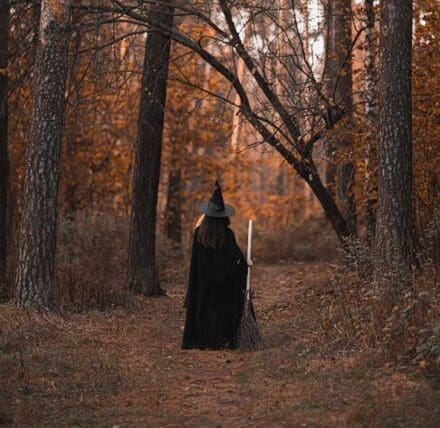INSIGHTS
Even witches can’t avoid Legal Rights
The Supreme Court in Spain recently ruled in favour of a mother who had disinherited two of her children because they had, on repeated occasions, accused her of “being evil, of practising witchcraft and that her house is haunted and malevolent”. Scottish Legal News reported that the two sons raised a court action when they discovered that their mother had removed them from her Will.
Had the parties lived in Scotland, the outcome would have been very different and the kids could have made a claim on her estate – broomstick and all!
Can I disinherit a child?
An ancient Scottish law prevents a parent from disinheriting a child and spouse. As the law currently stands, a child has a right to share in a third of the moveable estate if there is a surviving spouse and half of the moveable estate if their parent died unmarried.
This can come as a shock to many clients who were under the impression that they could have their Will state whatever they wish; even if their wish was for a child not to inherit any part of their estate. However, a child has the legal right to inherit from the estate of a parent regardless of the terms of a Will and also when there is no Will. It is treated as a debt on the estate and paid before any other payments as directed by the Will are made.
There are extremely limited and limiting ways in which you can attempt to avoid a legal rights claim. As stated above, the claim is only over the moveable estate therefore turning all of your estate into heritable property would result in no moveable estate against which a claim could be made. It is also completely impractical.
It would also be extremely unwise to try to defeat a claim by instructing your Executor not to inform your child of their legal rights. Your Executor has a legal obligation to administer your estate in accordance with Scottish law which includes settling any competent claims. The Law Society of Scotland have issued guidance to Solicitors that if instructed by an Executor not to contact a child to inform them of their legal rights, the Solicitor must withdraw from acting or risk being found guilty of professional misconduct. The right to claim subsists for twenty years after your death. Trying to defeat a legal rights claim by keeping quiet, will put your Executor and beneficiaries at risk of being subject to a claim by a child at any point during the twenty years.
Changing family dynamics
As family dynamics evolve, so too can relationships between family members. A step child may be viewed more favourably than a natural child that is thought of as lazy and entitled. A parent may not care for the person their child has married or perhaps their child’s spouse has children from a previous relationship and not therefore a biological grandchild. The law does not recognise any of these reasons as valid however unfair that may be. Testamentary intention is subject to consideration of the surviving family. It is enough that a parent – child (including adopted but not step) relationship exists, to create the right not to be disinherited.
Get in touch
Scottish Laws of succession are complex and you should seek the advice of a solicitor when making a Will. Our specialist team can answer your questions and make the common myths disappear – no need for witchcraft.
About the author
RELATED
CONTACT US
Call us for free on 0330 912 0294 or complete our online form below for legal advice or to arrange a call back.


